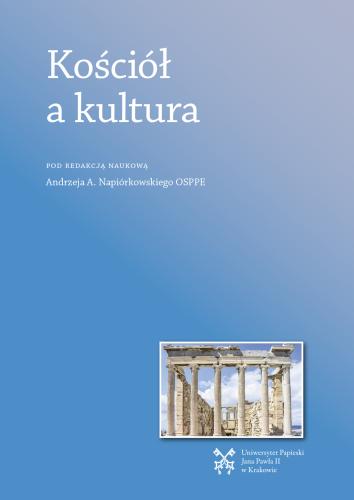The Greek Fathers and the Ancient Culture
Synopsis
The article shows the attitude of the Greek Fathers to selected aspects of ancient culture: the religion and religiosity of the ancient Greeks and Romans, philosophy and literature, architecture and art, and law and customs. The problem of the Christian writers’ attitude to the surrounding world dominated by the so-called Hellenistic culture became an important part of the teaching of the first Greek apologists, who had to clearly and unambiguously define what a Christian can accept from ancient culture and what he should reject. It is clear from their statements (and from the teaching of the later Greek Fathers) that Christians, in contact with Hellenistic culture, must not treat it en bloc, but should approach each of its elements individually, applying the principle of objective selection, which would enable them to properly assess what they can accept from it and what they should reject. Therefore, they responded positively to selected elements of ancient philosophical and literary culture, accepting what serves theology and human development. Indirectly, they responded positively to the achievements of ancient architecture by accepting certain architectural models as particularly suitable for sacred buildings. They also referred positively to ancient legal culture in many of its dimensions. On the other hand, with regard to the religion and religiosity of the ancient Romans, the Greek Fathers spoke out critically condemning all their manifestations, and from the beginning of the 4th century, the fight against paganism also took the form of destroying pagan places of worship. The Greek Fathers also spoke out strongly against the theater, considering all that went on in it to be completely incompatible with Christian morality.



